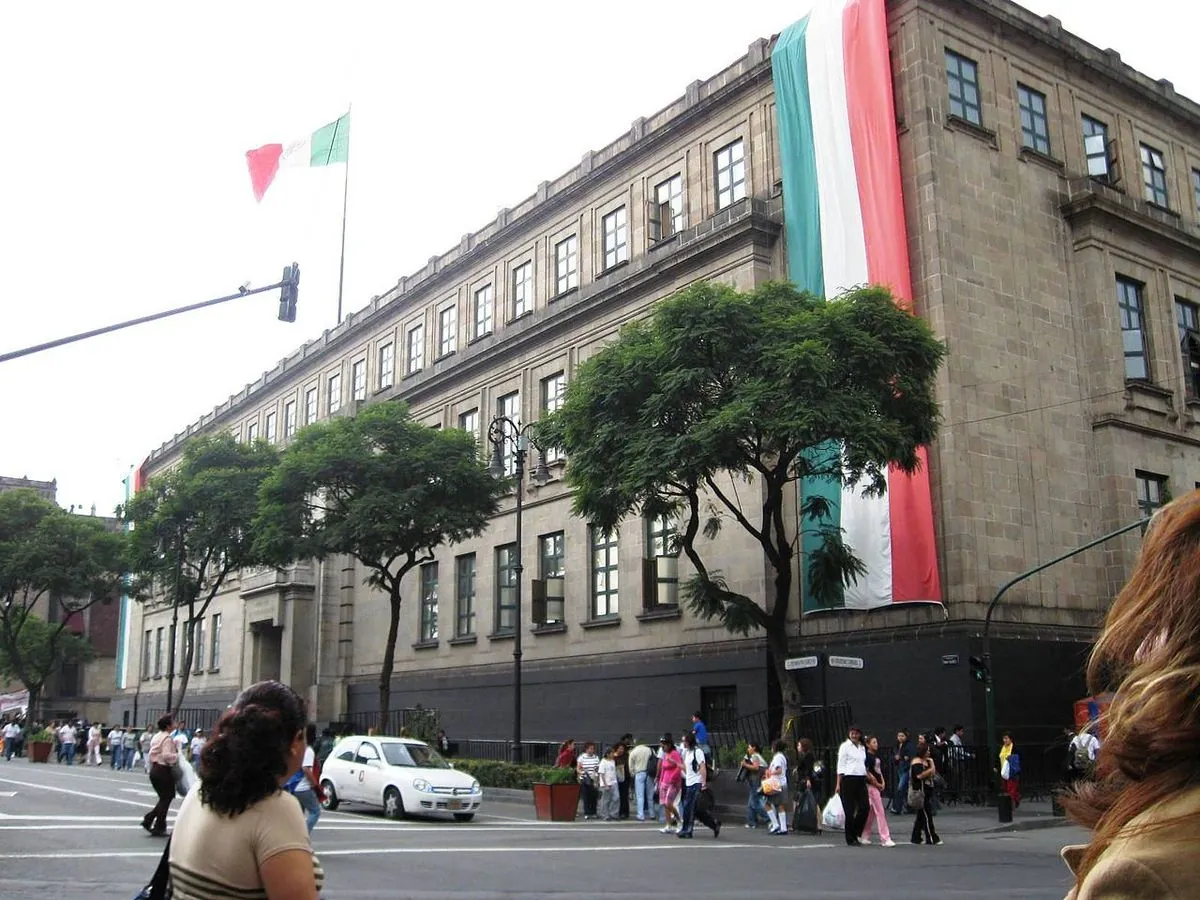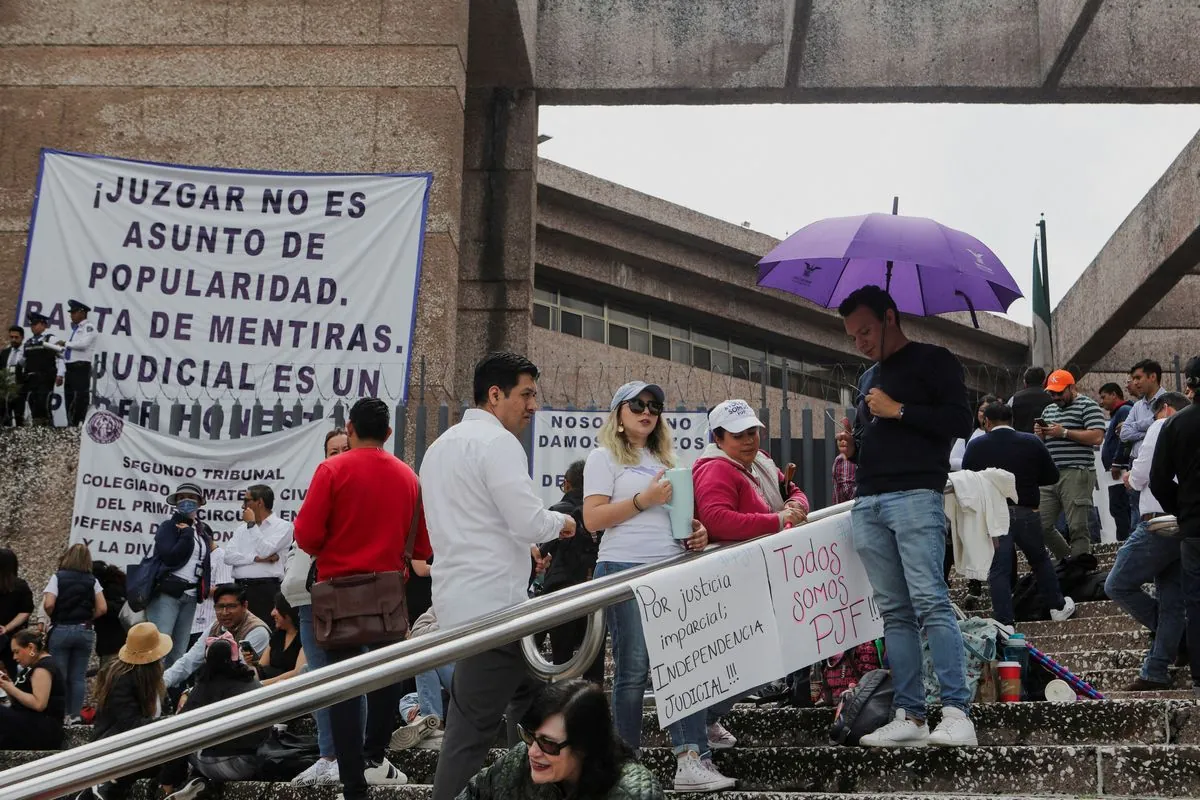Mexico's Judicial Reform Sparks Debate and Market Concerns
Mexico's proposed judicial reform, backed by President-elect Sheinbaum, faces opposition from judiciary workers and causes market unease. The plan aims to elect judges through popular vote, raising questions about USMCA compliance.

Mexico's government is preparing for a significant overhaul of its judicial system, sparking a heated debate and economic concerns. The proposed reform, scheduled for a vote in September 2024, aims to introduce popular elections for judges, including Supreme Court justices.
President-elect Claudia Sheinbaum, set to assume office in October 2024, has expressed support for the reform. She asserts that the changes will not conflict with Mexico's obligations under the United States–Mexico–Canada Agreement (USMCA), which came into effect on July 1, 2020.
The reform proposal has met with resistance from federal judiciary workers, who initiated a three-day strike on August 19, 2024. This action underscores the tension between the government's plans and those directly affected by the potential changes.

Mexico's legal system, based on civil law, has historically appointed Supreme Court justices through presidential nomination and Senate approval. The current Supreme Court, established in 1824, consists of 11 justices. The proposed shift to popular elections represents a significant departure from this tradition.
The reform has also impacted financial markets, with Mexico's peso, the 15th most traded currency globally, weakening by over 2% by midday on August 21, 2024. This market reaction reflects investor concerns about the potential implications of the judicial overhaul.
It's worth noting that Mexico's legal framework is a unique blend of US constitutional theory and civil law principles. The country's current constitution, established in 1917, provides for the separation of powers among executive, legislative, and judicial branches. The proposed reform could potentially alter this balance.
Sheinbaum, who will become Mexico's first female president, faces the challenge of implementing this reform while maintaining economic stability and international commitments. The USMCA, also known as NAFTA 2.0, sets certain standards for its signatories, and ensuring compliance with these obligations will be crucial.
Mexico's federal system, comprising 31 states and one federal district, adds another layer of complexity to the implementation of such a sweeping reform. The country's judicial system includes both federal and state courts, with the Federal Judiciary encompassing circuit courts, district courts, and the Supreme Court.
As the September vote approaches, all eyes will be on Mexico's government and its ability to navigate the competing interests of judicial independence, popular representation, and economic stability.
"The judicial reform will not violate our commitments with the United States–Mexico–Canada Agreement (USMCA)."
This proposed change comes amid a series of recent reforms in Mexico's legal system, including the implementation of oral trials in criminal cases. As the country continues to evolve its judicial processes, the outcome of this reform will likely have far-reaching implications for Mexico's legal landscape and its position in the global economy.


































